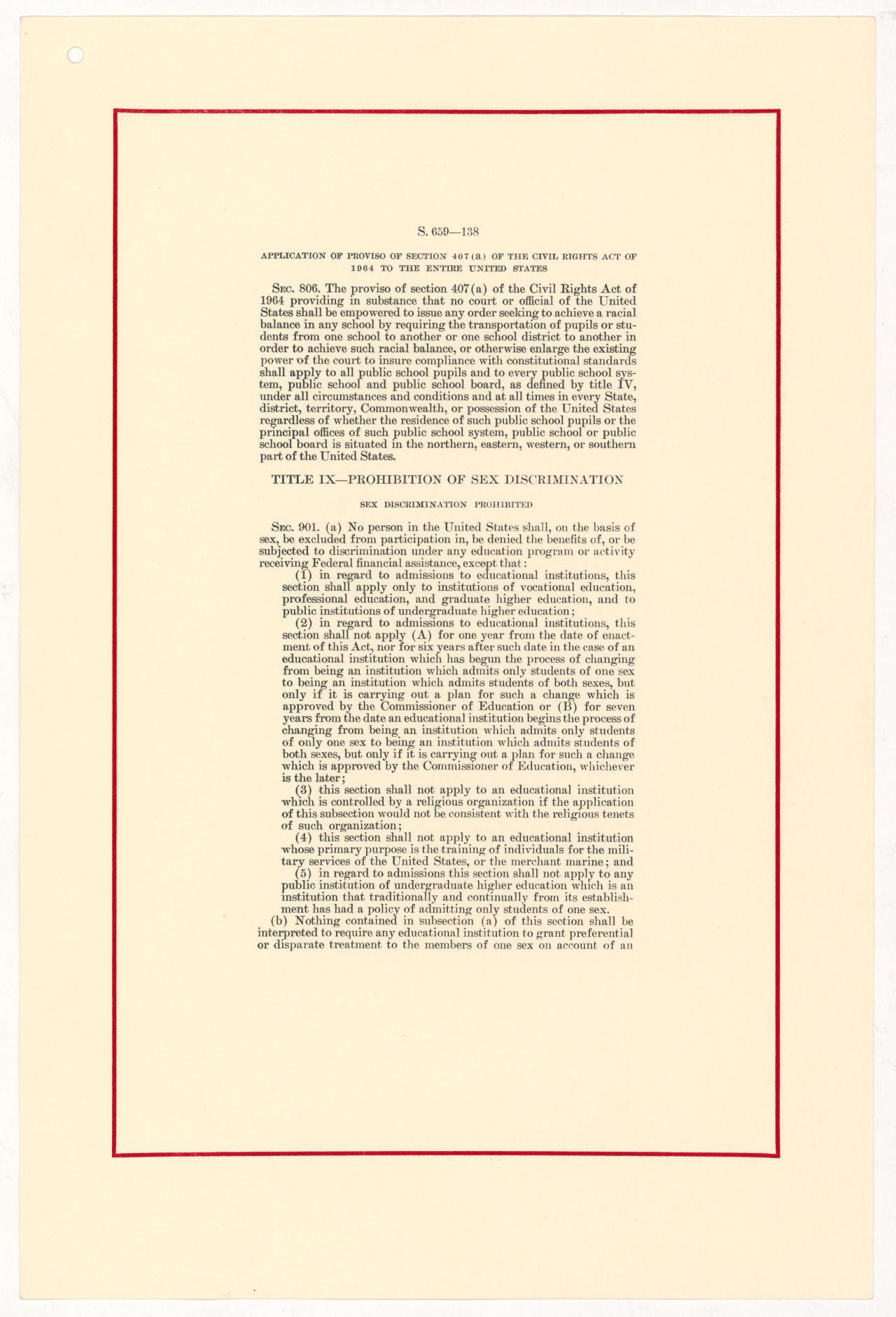
“Title IX” of the Education Amendments of 1972, June 23, 1972. Records of the United States Government, National Archives and Records Administration
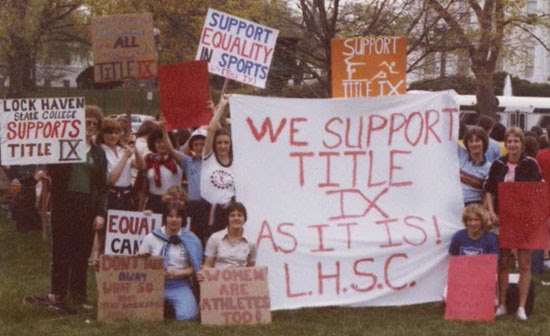
"A Title IX Premier." Women's Sports Foundation. N.p., n.d. Web. 21 May 2013.
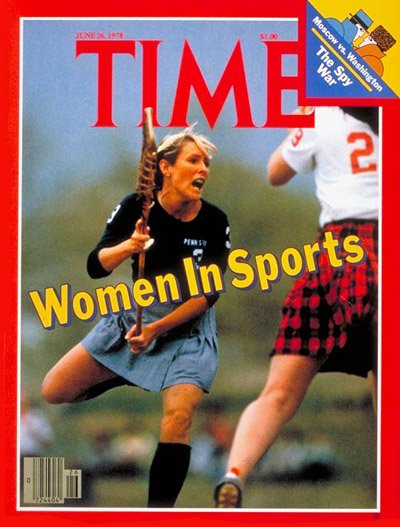
The June 26, 1978, cover of TIME. Cover Credit: Neil Leifer
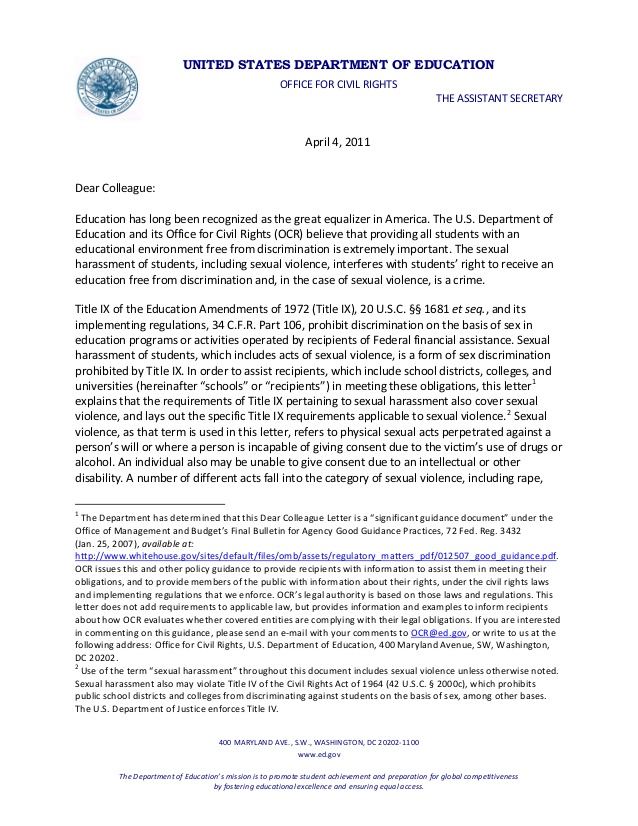
Office for Civil Rights, U.S. Department of Education. Office of the Assistant Secretary, April 4, 2011.
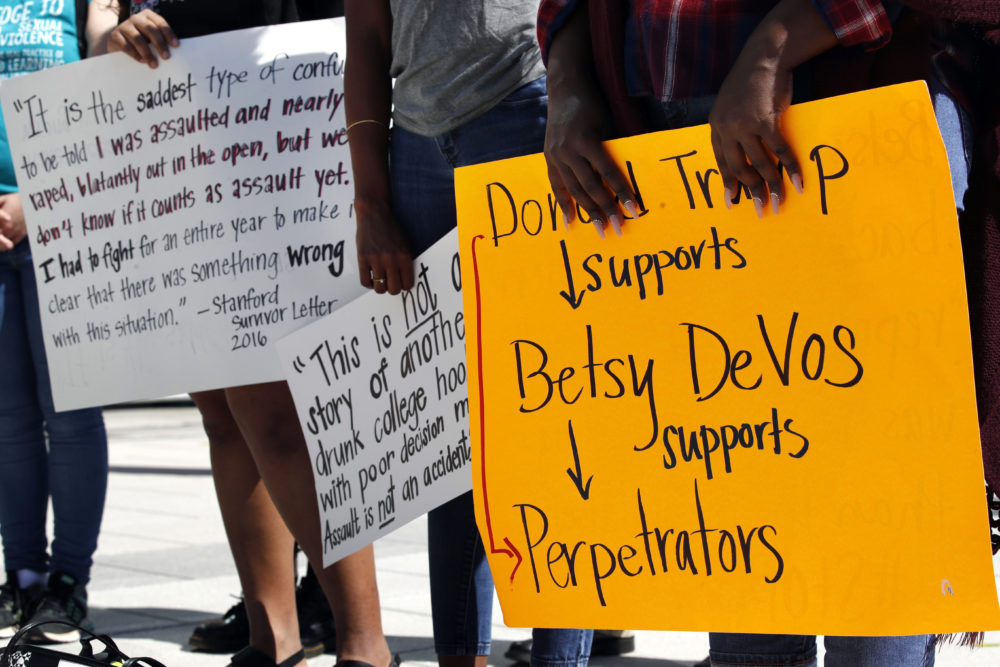
Protesters gathered outside the site of Ms. Devos’s address at George Mason University in Arlington, Va. Jacquelyn Martin/Associated Press
I. Brief History of Title IX
Title IX of the Education Amendment of 1972 (20 U.S.C. §1681 et seq.) was passed by the U.S. Congress on June 23, 1972. The federal civil rights law prohibits discrimination on the basiss of sex by any federally funded education programs or activities. This applies to most schools, covering approximately 16,500 local school districts, 7,000 postsecondary institutions, as well as charter schools, for-profit schools, libraries, and museums.
“No person in the United States shall, on the basis of sex, be excluded from participation in, be denied the benefits of, or be subject to discrimination under any education program or activity receiving Federal financial assistance.”
—Title IX, Education Amendments of 1972
Schools are required to disseminate a notice of nondiscrimination, have a Title IX Coordinator, publish a grievance procedure outlining the complaint, investigation, and disciplinary process for addressing Title IX violations, and respond promptly to reports.
II. From Athletics to Sexual Assault and Sexual Harassment
When Title IX was first added to the 1972 education reform bill, it was generally thought to affect hiring and employment practices at federally funded schools. The real intent of Title IX was to ensure equal access and opportunities for women in all facets of education. At that time, many universities either did not accept women or imposed a quota to limit female enrollment. There was also a huge barrier to participation for female athletes given little and uneven support from college athletic programs.
While Title IX is most frequently associated with its impact on intercollegiate sports, its coverage and application has expanded over the last four decades. Alexander v. Yale, 631 F. 2d 178 (2d Cir. 1980) was the first Title IX case to argue and subsequently established that sexual harassment is a form of sex discimination. In 1981, the OCR explicitly added sexual harassment to Title IX prohibitions and 16 years later in 1997, the OCR distributed its first guidance document to schools outlining Title IX compliance requirements around the issue. The use of Title IX in addressing campus sexual assault and misconduct cases has become particularly significant in recent years.
III. "Dear Colleague" Letter
On April 4, 2011, the Department of Education’s Office of Civil Rights (OCR) issued a "Dear Colleague" letter to over 7,000 schools outlining the requirements a school needs to take to address campus sexual harassment, including seuxal violence. The OCR also warned schools they could lose their federal funding if they did not take further measures to to prevent sexual violence.
In 2014, the DOE released a list of schools under investigation for possible violation of federal law related to the handling of sexual violence and harassment complaints, naming 55 colleges and universities. There are currently over 300 colleges and universities on the list (as of March, 2020).
IV. Title IX Under Trump and DeVos
The “Dear Colleague” letter was withdrawn in 2017 by current Secretary of Education Betsy DeVos. In February 2020, DeVos introduced new guidelines on the regulation of Title IX, rolling back many of the strict interpretations from the Obama administration. Many advocates of sexual assault survivors took issue with requirements that college administrators hold live hearing to make a decision in a case and that parties or their representative can cross-examine each other.
On March 27, 2020, 18 attorneys general urged DeVos to suspend the release of new Title IX regulations during the COVID-19 pandemic as school resources and capacity to implement new policies are limited at this time.